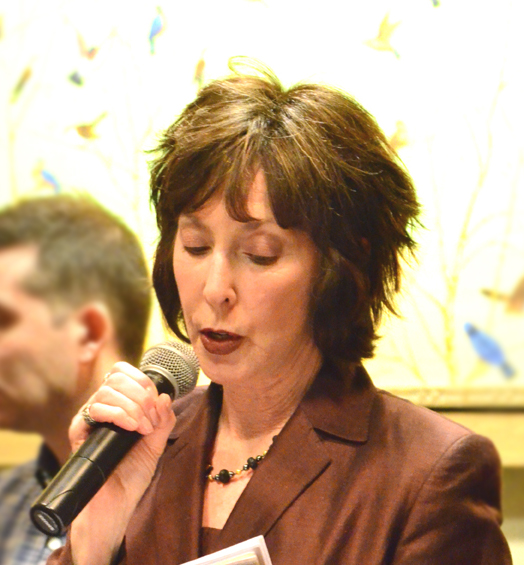April 28, 2020
The Cold Hard Facts of Being an Author
Previously published on April 9, 2019
 We all have our writing fantasies: the New York Times best seller list, people lined up down the block to hear us speak and have us sign our book for them, Oprah picking our book for her book club (does she still do that?)...
We all have our writing fantasies: the New York Times best seller list, people lined up down the block to hear us speak and have us sign our book for them, Oprah picking our book for her book club (does she still do that?)...
In 2015 I was having those fantasies as my agent submitted my second novel to St. Martin's Press. They published my first book, What More Could You Wish For in 2012, one of the most thrilling events of my life. That had been my first fantasy, to be published by one of The Big Five and, amazingly, that happened. Now, book number two was ready and they had first option on it. So wasn't my unbridled success just around the corner? Was it too soon to put a downpayment on that apartment in Paris with the stone fireplace and the exposed wood beams?
St. Martin's Press declined to acquire that book, my agent told me, a nice way of saying, "No, thank you."
Why the hell not? Was it a lousy book? I didn't think so (of course I didn't). Was it a great book? Well...probably not, but it was decent and it's well-written, maybe not perfect, but one of the benefits of being published traditionally is the wonderful editor you get to work with. But I don't think that was the issue. I believe the deciding factor for St. Martin's Press was my numbers on book number one. That book didn't sell very well (and if I could make heads or tails of the statements they send me I could maybe tell you how many it actually sold), but that's not unusual for a debut author with no following.
Still, that rejection hurt. Then I came across this article: http://www.kameronhurley.com/the-cold-publishing-equations-books-sold-marketability-love/ In that article, Kameron Hurley says:
I want to talk about the reality of being a debut author, because nobody actually talked to me about those numbers. What defined success? What should I expect? Was I a failure if I sold fewer than 80,000 copies? Fewer than 20,000? I know selling 100 is bad, but outside that….?
The average book sells 3000 copies in its lifetime (Publishers Weekly, 2006).
Yes. It’s not missing a zero.
Take a breath and read that again.
But wait, there’s more!
The average traditionally published book which sells 3,000 in its entire lifetime in print only sells about 250-300 copies its first year.
My chances of selling more of book number two probably don't look promising to SMP, even though now I have a (small) audience, so why take a chance? Discouraging? Yes, of course.
Then there's the fact that my agent isn't quite on board with book number two, although she likes my writing, but she's looking for more revisions before she tries to sell to another publisher. So what now?
Frankly, I was a little sick of that story after working on it and revising it for three years (not a terribly long time in the world of novel writing). So I worked on book number three for a while and now it's four years later (four years!) and I've gone back to book number two.
It's a frustrating and disheartening business, this business of writing novels. I have always known that. It's even more frustrating now, from where I sit, feeling a little like I've failed.
But, my friend Barbara likes to remind me that I have a book that was published by one of the biggest publishers in the world; I have written a second ENTIRE book; I am now working on a third; I can utter the phrases, "my publisher" and "my agent," so where's the failure in that?
After reading Kameron Hurley's article I feel better. I'm not alone here. I'm walking in the footsteps of many other authors — some wildly successful, some not, but most whose books will sell 3000 in their lifetime.
As Kameron Hurley says, the only thing we have control over is the words on the page.
If I quit writing, that failure is on me.
Books number two and three are works in process, and if I don't finish them my chance of them being published is zero. There's a huge element of luck in this business, no question, but the part that isn't luck is the part where you sit down and write. My reason for writing is not because I think I will make a lot of money doing it (obviously!), I write because I love to write.
So...onward!

Writer, editor, personal assistant, private chef, runner (8-time marathoner), film and theatre buff, traveler… Author of What More Could You Wish For (St. Martin's Press).
V.P. of the Chicago Writers Association, Executive Director of Let's Just Write! An Uncommon Writers Conference.
Visit me at www.samanthahoffman.com
Affiliates/Partners
Testimonials
Contact
Join CWA
Member Profile
My Account
Writers Conference
Presenters
Agents and Publishers
Pitch Sessions
Sponsors
Scholarships
Speaker Registration
Book of the Year
Spirit Award
First Chapter Contest
Resources
Home
Chicago Writers Association
info@chicagowrites.org
Make a Difference!

